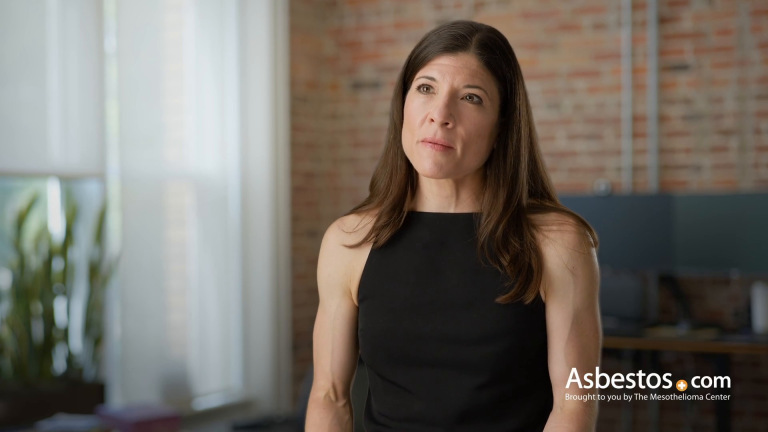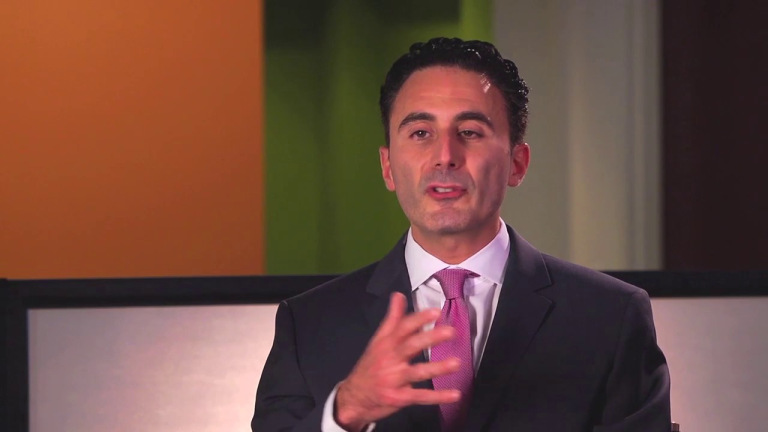Mesothelioma Cure
Mesothelioma can’t be cured yet, but treatment may help people live longer. Surgery, immunotherapy and chemo are helpful for some people. Finding it early and joining clinical trials can offer more options. If these aren't successful, doctors can still help manage symptoms.
Is Mesothelioma Curable?
There is no definitive cure for mesothelioma. In rare cases, some people with this cancer can go into complete remission. Some doctors call it a cure if remission lasts more than 5 years.
Using more than one kind of treatment can improve the chances of remission. With treatment, mesothelioma survivors live about 15 months on average. About 12% of people live 5 years or longer. While complete remission is rare, many people reach partial remission. This is when mesothelioma shrinks or slows down. Some people stay in partial remission for years and manage the disease with ongoing care.
“I try to encourage patients to think of it more in terms of a goal of long-term survival with good quality survival,” mesothelioma specialist Dr. Andrea Wolf tells us. Seeing a mesothelioma specialist can also lead to better results.
Mesothelioma is a serious cancer that spreads fast and often doesn’t show symptoms for many years. Because of this delay, most people don’t know they have it until it reaches a later stage. At that point, doctors find it much harder to remove or stop the cancer.
Mesothelioma Remission
Remission happens when tumors shrink and symptoms improve for at least a month. In partial remission, the tumors shrink 50% or more. In complete remission, doctors can’t find any signs of cancer. Partial remission is more common than complete remission.
Our exclusive 2025 survey of mesothelioma survivors found doctors told 11% of patients they were in remission. Of those who went into remission, 23% had surgery. Everyone who reached remission had some kind of treatment.
The type of mesothelioma someone has can affect how well they do with treatment. People who had treatment for peritoneal mesothelioma have higher 5-year survival rates. But remission means no signs of cancer. This is different from living longer with the disease. Remission is a separate concept from overall survival.
Latest Research for a Mesothelioma Cure
Researchers are working hard to develop a mesothelioma cure. Clinical trials are an opportunity to test existing and new therapies. These trials led to key advances in how doctors treat mesothelioma today.
For example, clinical trials studying immunotherapy showed positive results. This led to the U.S. Food and Drug Administration’s first approval of immunotherapy for mesothelioma in 2020. The agency has approved more drugs, drug combinations and pairings with chemo since. Because of this research, immunotherapy is now a standard part of mesothelioma care. And research continues.
For example, experts are looking at better ways to target proteins in the body to fight this cancer. A 2025 study published in the journal Cancer Biomarkers says targeting the protein MCP-1 is worth more research. It could be a future treatment for mesothelioma-related pleural effusions.
And when I spoke to the professor and explained to them, the case of mesothelioma, the professor told me you know the best type of treatment for this patient is to give him a fishing pole and tell him to go fishing.
Then years later, I went to Bringham and Women’s Hospital with Dr. Sugar Baker, and then learned that there’s a lot of options for mesothelioma. And as the science continues to grow, as we start looking at it from a different angle, as we start thinking outside the box, There’s gonna be a lot of innovative and very interesting treatments for this disease.
I think the way to make a progress is to think outside the box, learn how to make the patient’s immune system go after these cancer cells.
Learn how to find a better way to diagnose and diagnose this disease earlier and find ways to use the patient’s genes to beat this disease. And that’s what I and my team at Moffitt Cancer Center try to achieve for our patients. Innovative ways with our clinical trials, cutting edge radiation therapy that we offer, and state of the art surgery for our mesothelioma patients.
Breakthroughs in Clinical Trials
It can take 12 to 15 years to bring a new mesothelioma drug to patients. Drugmakers spend about 7 years just to reach the first clinical trial. In the early stages, researchers test new drugs on mesothelioma tumor samples in the lab instead of testing them on people. The National Mesothelioma Virtual Bank gives scientists access to these samples. This helps make this research possible.
Once a drug works safely in the lab, researchers can begin clinical trials with people. These trials take several more years. Researchers track side effects, bad reactions and how well the treatment works. A drug must pass all these steps before a company can sell it to the public.
Mesothelioma Research Centers
Some of the most impactful mesothelioma research is underway at research centers and hospitals throughout the United States. These centers and hospitals conduct preliminary laboratory research. Others conduct clinical trials with mesothelioma patients.
Centers Conducting Mesothelioma Research
- AdventHealth Celebration in Kissimmee, Florida
- Harvard Medical School’s partnership with Brigham and Women’s Hospital
- Mount Sinai Hospital in New York City
- National Institutes of Health
- Shukla Research Lab at the University of Vermont
- Vaccine and Immunotherapy Center at Massachusetts General Hospital
Top treatment centers have the best support and resources to run mesothelioma clinical trials. Mesothelioma specialists and their multidisciplinary teams are active in these trials.
These trials provide the latest emerging treatments and asbestos cancer medication to people who are eligible. Our Patient Advocates can help you find a mesothelioma specialist and learn more about the latest clinical trials.

We’ll get you the best doctor for your diagnosis and schedule appointments with them quickly.
Find My DoctorRefining Treatments to Find a Cure for Mesothelioma
A big part of finding a cure is making existing mesothelioma treatments work better. Surgeries become more precise. Chemo and radiation work more effectively. The timing of these therapies and combinations are refined.
When the FDA approved Opdivo (nivolumab) and Yervoy (ipilimumab), immunotherapy became standard treatment for mesothelioma. But experts continue to find ways to refine it. Trials study new combos with chemo, radiation and surgery.
Advancements in Mesothelioma Treatment
- Chemo: The FDA approved a combination of Alimta (pemetrexed) and platinum chemo with the immunotherapy drug Keytruda (pembrolizumab) as a first-line treatment for advanced pleural mesothelioma in September 2024.
- Immunotherapy: In addition to exploring new combinations, research is underway exploring ways to use this standard treatment for other types of mesothelioma. It’s currently approved specifically for pleural mesothelioma. One clinical trial currently recruiting will compare chemo alone to chemo with immunotherapy for peritoneal mesothelioma.
- Multimodal: Combinations of different therapies are being explored to refine approaches. Clinical trials are underway to also look at the timing of these therapies. For example, a trial is currently looking at adding immunotherapy before surgery.
- Radiation: This traditional therapy is also being explored in new ways. Researchers are looking at the benefits of radiation before surgery and radiation combined with immunotherapy.
- Surgery: Researchers continually look for ways to refine surgical techniques. Clinical trials also look at new combinations of surgery with other therapies. For example, a recent pilot study looked at pairing surgery with photodynamic therapy. Results haven’t posted yet, but this could open the door to more research.
Doctors and scientists across the country are developing clinical trials to test new protocols and combinations. For example, after years of research, the FDA approved Tumor Treating Fields for pleural mesothelioma. This treatment uses electrical fields along with chemo to slow down tumor growth and stop the cancer from spreading.
Emerging Treatments for Mesothelioma
New mesothelioma treatments include targeted therapy, vaccine therapy and special types of immunotherapy like CAR T-cell therapy. Doctors and researchers run clinical trials to test and improve these new treatment options for mesothelioma.
The following emerging treatment options for mesothelioma are still being tested through clinical trials. As researchers learn more, these methods could become safer and more helpful. One day, they might become part of regular mesothelioma treatment.
Emerging Mesothelioma Treatments
- Anti-angiogenics: Cancer needs blood vessels to grow. Avastin (bevacizumab) helps block them. This may slow mesothelioma growth.
- Cryotherapy: This therapy kills cancer cells with a probe that applies extreme cold to tumors. It’s mainly used to control tumors that return after treatment.
- Gene Therapy: The goal of gene therapy is to repair problems that defective or missing genes can cause. Suicide gene therapy modifies cancer cells to include a self-destruct gene. Treatment with the p53 gene helps the immune system find and kill cancer cells.
- Photodynamic Therapy: Activating a photosensitizing drug with a unique light frequency can kill cancer cells. Photodynamic therapy only affects cancerous areas, avoiding damage to surrounding healthy tissue.
- Vaccine Therapy: Like vaccines for flu and other diseases, a mesothelioma vaccine helps your body produce antibodies to fight cancer. This treatment can provide long-term protection against a recurrence for patients in remission.
- Virotherapy: This emerging therapy involves laboratory-manipulated viruses that deliver medication and gene therapy inside cancer cells. Virotherapy is also notable for eliciting an immune response and combining well with other immunotherapies.
Pleural mesothelioma survivor Kay Kilpatrick-Simmons underwent cryoablation at UCLA. She tells us she’s grateful for the care she received from Dr. Robert Cameron and now focuses on staying positive.
“Mental attitude plays into this. How much? I’m not sure,” Kilpatrick-Simmons shares. “I stay away from anything that might be depressing. I try not to even think about this disease unless I have a scan coming up.”

Discover new treatments with immunotherapy clinical trials near you.
Sign Up NowObstacles to Finding a Mesothelioma Cure
Even though new treatments have helped improve survival rates for mesothelioma, doctors still face many challenges in finding a cure. Mesothelioma is a rare cancer, and it doesn’t get as much attention or funding as more common cancers like lung, colon or breast cancers.
The government gives less money to mesothelioma research than to other cancers. Researchers also struggle to find enough people for clinical trials, especially those involving surgery, even though surgery has helped some people live longer.
How You Can Help Find a Mesothelioma Cure
Joining clinical trials, donating to research or supporting advocacy groups are ways you can help find a cure for mesothelioma. When you get involved, you make a difference for survivors and their families, bringing hope for a better future.
Ways You Can Help Find a Mesothelioma Cure
- Helping advocacy groups: Cancer advocacy groups educate the public, policymakers and health care professionals about the impact of mesothelioma. They also raise funds for research and to support affected families.
- Participating in clinical trials: Participation allows patients to contribute directly to the advancement of treatment options and an eventual cure. These trials have led to FDA-approved treatments that help people live longer with mesothelioma.
- Raising awareness: Increased awareness of a disease contributes to early detection, better treatment outcomes and support for research initiatives. Raising awareness also promotes early diagnosis when treatment is most effective.
- Supporting research: Supporting organizations financially or through volunteer work helps researchers find a cure for mesothelioma. Every contribution, big or small, makes a difference in the fight against this disease.
Peritoneal mesothelioma survivor and writer Tamron Little tells us, “Using my voice to share my story is vital to spreading mesothelioma awareness. I’m pretty comfortable talking with people and sharing my journey on multiple platforms.”
“This allows me to change the narrative about the typical mesothelioma patient.,” Tamron adds. “It’s important for people to actually see that a young woman of color was exposed to asbestos as a toddler and diagnosed with peritoneal mesothelioma at the age of 21.”
Common Questions About Finding a Mesothelioma Cure
- Has anyone been cured of mesothelioma?
-
There is currently no cure for mesothelioma, but some patients have lived more than a decade in partial or complete remission. For example, peritoneal mesothelioma survivor Trina Reif has lived more than 20 years after her diagnosis in 2001.
Medical research documents several cases of long-term and complete remission, but partial remission is more common. Advancements in treatments through mesothelioma clinical trials continue to provide patients hope for an eventual cure.
- Can lung surgery cure pleural mesothelioma?
-
No. Lung surgery doesn’t cure mesothelioma. Some mesothelioma surgeries remove the affected lung, but mesothelioma surgery isn’t a cure. Being a candidate for surgery can extend the life expectancy a year or more for a person with pleural mesothelioma.
- What are the chances of surviving mesothelioma?
-
Despite a lack of curative treatments, about 5% of pleural patients and 39% of peritoneal patients have lived more than 10 years with mesothelioma. About 12% live longer than 5 years with pleural, and 65% of peritoneal patients live at least as long as 5 years.
- How does early detection improve mesothelioma survival rate?
-
Patients diagnosed with mesothelioma in an early stage of progression often qualify for multimodal treatment. Treatment at an early stage helps to control this condition and is associated with improved survival rates.





